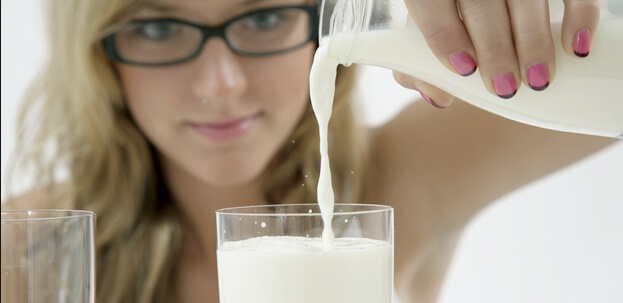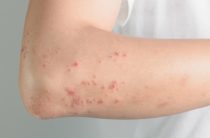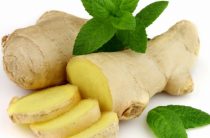Despite the fact that many claim that natural cow's milk is one of the healthiest foods, it can still provoke allergic reactions in children and adults. This type of allergy is caused by the presence of casein protein in cow's milk. This protein has a large molecular weight. As a result, it is perceived by the body of kids and adults as alien. Most often, children suffer, since their immune system is only at the stage of formation.
This reaction is provoked by the use of cow's milk at too early an age (instead of breast milk) or infant formula. And the child enters the so-called new adult life with an allergy. Medicine is developing intensively and doctors strongly do not recommend using it in the children's diet at all. This type of allergy manifests its symptoms not only to milk in its pure form, but also to condensed milk.
Diagnostics
This type of allergy can be easily confused with lactase deficiency. Its main characteristic is the absence of the enzyme lactase. Lactase is needed by the body of toddlers, as well as adults, to digest milk sugar. As a result, there is intolerance to cow's and mother's milk. A symptom of this in adult humanity, in small children is diarrhea. Allocate primary and secondary intolerance.
- Primary - immediately after birth. The baby's body is not able to digest mother's milk.
- Secondary - develops with damage to the intestinal mucosa.
Allergy symptoms
Diagnosing this type of allergy is not difficult, since its symptoms are very characteristic, especially after drinking milk.
So what are the symptoms:
- Nausea;
- Vomit;
- Itching in the throat;
- Vomit;
- Stomach ache;
- eczema;
- Pronounced circles under the eyes;
- Eye irritation.
In addition to the above symptoms, children may also experience the following:
- Belching after feeding;
- Irritation;
- Liquid stool;
- Behavior change;
- Difficulty breathing;
- Dehydration.
Other allergic manifestations may also occur. Adults and young patients will experience skin rashes, urticaria, dermatitis, and even anaphylactic shock.

Treatment
In the treatment of allergy symptoms, the main thing is the complete exclusion of dairy from your diet. The so-called dairy-free diet, which provides for the exclusion of such products:
- Yogurt;
- Ice cream;
- Butter;
- Cheese;
- Sour cream;
- Cream;
- Cottage cheese.
Also, adults, before feeding themselves and their children, should pay attention to the content of other products, as they may include cow's milk protein. These include:
- Bread, cakes, cookies;
- Cereals;
- Chocolate;
- Margarine;
- Mashed potatoes;
- Meat;
- Seasonings for salads.
Now remember the ingredients that contain milk:
- Lactalbumin;
- Melted butter;
- Lactose;
- Serum;
But we all know that dairy products are a powerful source of calcium for the body of adults and babies. Then the question arises: what kind of replacement to find him? Doctors unequivocally advise replacing cow's milk with goat's, as it is fortified with calcium and vitamin D, which are so necessary for the normal functioning of our musculoskeletal system.
If you suffer from a milk allergy, then you should eat foods such as spinach, broccoli, soy. Rice and almonds are rich in calcium and vitamin D.
It is necessary to exclude not only food products containing milk, but also various cosmetic products - creams, ointments, in order to avoid the occurrence of unwanted allergic symptoms. Dietitians may also recommend taking antihistamines.
Causes of cow's milk allergy:
- genetic predisposition;
- Interruption of breastfeeding in infancy;
- Insufficient protection of the digestive tract;
- Insufficient amount of elements that break down milk protein;
- Allergy to food.
The benefits of goat milk
Goat's milk has the same list of useful properties as cow's, but excludes from its composition the main causative agent of allergies - alpha-1-casein. And on the contrary, it contains a large amount of beta-casein, which brings it as close as possible to breast milk. It can safely be called hypoallergenic.
It also contains a fairly large amount of vitamin B12, which is involved in hematopoiesis and metabolic processes in adults and babies. In order to make sure that goat milk is useful, let's look at what vitamins this product is rich in: A, C, D, E, vitamins of group B, H, PP. By using it, a person receives the necessary dose of vitamins and minerals.
Doctors recommend drinking goat's milk during the rehabilitation period after colds, as well as more serious diseases and surgery.
Goat's milk is rich in multiple minerals that cow's milk cannot boast of. These elements include: phosphorus, potassium, magnesium, calcium, iodine, copper, sodium. In this regard, pediatricians, in the absence of milk from the mother, recommend that babies drink it.
But, nevertheless, there are contraindications to the use of goat's milk. This:
- Diseases of the pancreas;
- People who are on a strict diet.
Unfortunately, according to many doctors, it is impossible to completely recover from an allergy to milk. You can only maintain the normal functioning of your body, which is achieved by following a strict diet.















